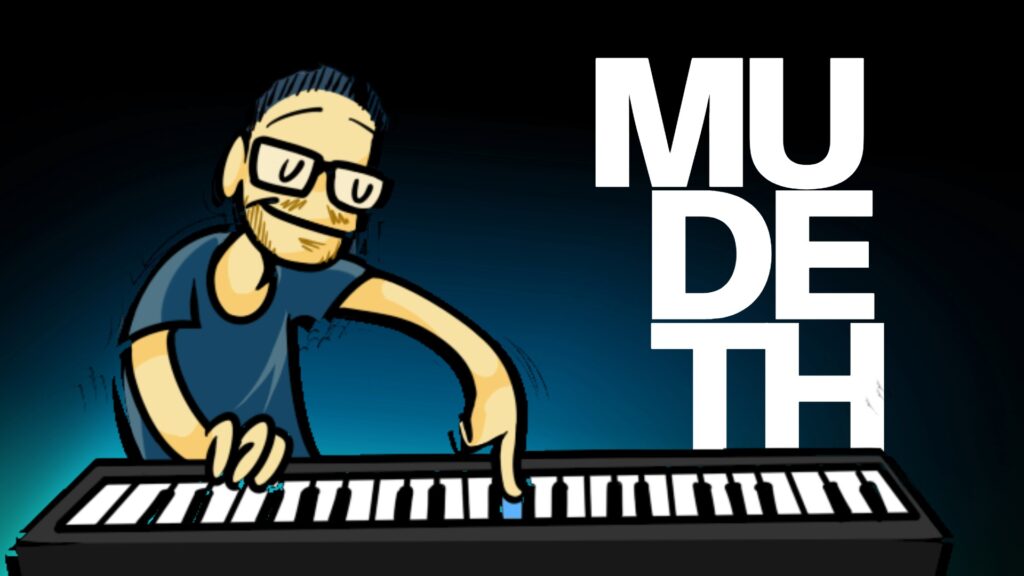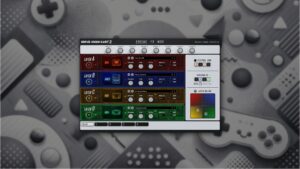When most people think of The Binding of Isaac, they think of its endless item synergies, its haunting imagery, and its strange ability to consume hundreds of hours of a player’s life. But for many, the experience is inseparable from the sound that carries it: the music of Mudeth, the composer behind the fan expansion Antibirth — a work so beloved that elements of it became canon in the official release Repentance.
Yet Mudeth’s story isn’t just about writing music for a game. It’s about burnout, rediscovering joy in creation, and the lifelong struggle between authenticity and compromise.
“I’d run out of things to give,” Mudeth recalls of his career in advertising music. “I did not have any well to pull from. And when I did this [the Antibirth soundtrack], it was purely from the point of view where I just wanted to do what I wanted to do.”
From Burnout to Creative Joy
Mudeth’s career began far from indie games. Based in Bangalore, he spent nearly two decades composing for commercials and corporate projects — a reliable living, but one that drained him of the spark that drew him to music in the first place. Endless client revisions, soulless ad campaigns, and the grind of deadlines left him depleted.
So, he turned inward. As a fan of The Binding of Isaac, he began writing his own alternate soundtrack simply for the joy of it. He posted it online, not expecting much. Instead, the modding team behind Antibirth reached out, and soon his music became inseparable from one of the most celebrated Isaac experiences ever made.
What began as an escape from burnout became a creative rebirth.
Artist vs. Craftsperson
One of the strongest threads in our conversation was the distinction between being a craftsperson and being an artist. Craft, Mudeth acknowledges, can be executed on demand. It’s about meeting specifications, hitting deadlines, and producing something that “works.” But artistry demands more:
“One of the basic definitions of an artist is that they yearn for authenticity. That’s the only acceptable mode of being. If they don’t feed that part of their spirit, they suffer. It’s physically painful.”
The danger, as Mudeth put it, is mistaking technical competence for artistic depth. A track can be polished, impressive, even clever — but if it doesn’t feel right, it isn’t art.
I echoed this from my own perspective, adding:
“If a piece doesn’t work, I ditch it, no matter how many hours I’ve invested.”
It’s a painful but necessary lesson: effort alone doesn’t make something art.
The Value of Releasing
Perfectionism is a trap many artists know well. Ideas sit on hard drives for years, imagined as “someday masterpieces,” never tested in the real world.
In our conversation, I reflected on this challenge:
“Until it’s out there, you don’t have to face its true form. Once it’s released, you’re confronted by reality — and that’s the only way you learn.”
I also added:
“Every stage of life offers a different creative lens. If you wait too long, the perspective that gave birth to a song may be gone forever.”
This became a point of resonance between us. Mudeth agreed, sharing how even he sometimes loses perspective on his own tracks — only rediscovering their power years later when he hears them with fresh ears. That exchange underlined a truth for both of us: the act of releasing isn’t just about sharing work with others, it’s about calibrating your own growth as an artist.
Resonance and References
Fans often single out tracks like Machine in the Walls as highlights of Mudeth’s Isaac work. He himself is bemused by this — other tracks felt more powerful during the writing process. But that disconnect is part of the beauty: you can never predict what will resonate.
Much of his music is layered with references — callbacks to Danny Baranowsky’s original Isaac score, echoes of films, games, and music that shaped him. It’s fitting, given that Isaac itself is a tapestry of references, stitched from Edmund McMillen’s memories of childhood games, religion, and culture.
In that way, Mudeth’s music doesn’t just accompany Isaac. It mirrors its very essence: deeply personal experiences refracted through imagination, transformed into something universal.
Lessons for Creatives
Our conversation circled around themes every creative person wrestles with:
- Authenticity over approval. “Better to create something you absolutely love and have five people connect with it, than to make something you don’t care about and get praise from thousands.”
- Release, don’t hoard. Only by finishing and sharing can you truly learn.
- Embrace imperfection. Overworking a track rarely improves it; freshness and surprise are often more valuable.
- Balance is everything. Just as games can either nourish or drain us, so can the act of creation.
In the end, Mudeth’s story is less about one game or one soundtrack, and more about a way of being. It’s about reclaiming joy from burnout, insisting on authenticity in a world of compromise, and learning when to hold on — and when to let go.
Prefer Video? 🎥✨
If you’d rather watch than read, the entire in-depth conversation with Mudeth is available on YouTube:
👉 Full Interview with Mudeth (Antibirth OST Composer)
This near-three-hour interview covers everything — from the origins of Antibirth 🎮 to creative philosophies, burnout and perfectionism, and the art of letting go. It mirrors all the themes explored here and lets you experience the full arc of our conversation in Mudeth’s own words.





